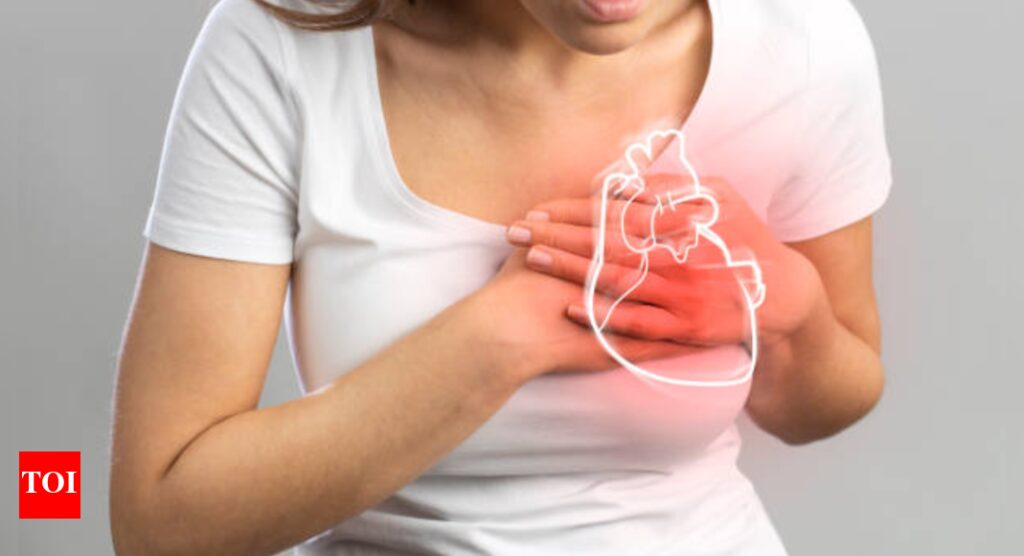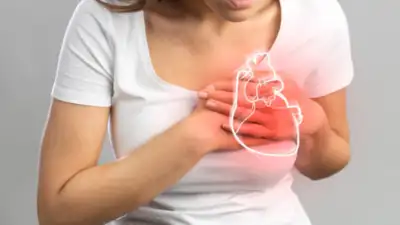Cardiac Arrest Symptoms: Sudden cardiac arrest strikes fast: Watch for these silent symptoms |

Actor Shefali Jariwala, best known for her iconic appearance in Kaanta Laga, passed away at just 42, leaving fans shocked and reigniting concerns over the growing incidence of sudden cardiac arrest in younger adults. She died unexpectedly on Friday night.What makes sudden cardiac arrest so terrifying is how silently it strikes. There’s rarely any warning—no clutching of the chest, no gasping for breath, no time for final words. More often than not, it arrives quietly, like a thief in the middle of the day. One moment, the person is fine. The next, they collapse. And that eerie stillness is what makes it so deadly—and so easy to miss.We’re used to imagining heart problems, someone groaning, holding their chest, warning those around them. But cardiac arrest? It often gives you no such warning. One moment you’re fine, maybe walking, talking, even laughing. The next moment, your heart stops beating. Literally.
What exactly is sudden cardiac arrest?
Cardiac arrest is not the same as a heart attack. That’s the first big misunderstanding. A heart attack happens when there’s a blockage in the blood flow to the heart. You can still be conscious, in pain, and have time to get help. Cardiac arrest, on the other hand, is an electrical problem. Your heart’s rhythm goes haywire—often due to a condition called ventricular fibrillation—and your heart just stops pumping blood. Instantly. That means no oxygen reaches your brain, your lungs, or any part of your body.The person passes out, stops breathing, and unless someone jumps in with CPR and a defibrillator within minutes, the chances of survival drop fast. We’re talking 7 to 10% per minute. So yeah, every second counts.
Cardiac arrest symptoms: The signs? They’re not what you think
Here’s where things get tricky. Most people assume sudden cardiac arrest comes with warning signs like chest pain or breathlessness. Sometimes it does. But in many cases, there are no clear signs at all. The collapse is the first and only major sign.“Most people who had a cardiac arrest had one or more symptoms in the hour before the event. Some symptoms may even appear a few weeks before a cardiac arrest. But many people who have a cardiac arrest had no prior symptoms,” says the US National Heart, Lung, and Blood Institute. The possible warning signs of cardiac arrest are: Shortness of breath (more common in women than men), Extreme tiredness (unusual fatigue), Back pain, Flu-like symptoms,Belly pain, nausea, and vomiting, Chest pain, mainly angina (more common in men than women), Repeated dizziness or fainting, especially while exercising hard, sitting, or lying on your back, Heart palpitations, or feeling as if your heart is racing, fluttering, or skipping a beat.Unexplained fatigue, dizziness, shortness of breath while doing regular tasks, a feeling of your heart “skipping” or beating too fast, or even fainting episodes. These aren’t symptoms people usually rush to the ER for, especially if you’re young, otherwise healthy, and not someone with a known heart condition.Women, in particular, tend to have even vaguer symptoms—like nausea, back pain, or extreme fatigue. And since many people brush these off as stress, gas, or being “just tired,” the red flags get ignored.It can happen to anyone—even the seemingly healthy.One of the most shocking things about sudden cardiac arrest is that it doesn’t discriminate. Sure, people with heart disease, arrhythmias, or structural heart problems are more at risk. But every now and then, you hear about a young athlete collapsing during a game. Or a middle-aged gym-goer who seemed in peak condition dropping suddenly. Or someone dying in their sleep.That’s the scary part. Conditions like hypertrophic cardiomyopathy (thickened heart muscle), inherited arrhythmias, or even long QT syndrome can lurk quietly without symptoms. You could pass your annual check-ups and still be walking around with a silent threat ticking inside.
Why we ignore the symptoms
We downplay symptoms. We power through fatigue, chalk up palpitations to caffeine, and blame dizziness on skipping breakfast. Unless someone has full-blown chest pain or collapses in front of us, we rarely think “heart problem.”There’s also the age factor. Many assume cardiac arrests are for people over 60. But cases among 30- and 40-somethings are climbing, due to lifestyle changes, rising stress, poor sleep, and undiagnosed health conditions. And with younger people, symptoms are more likely to be missed.






